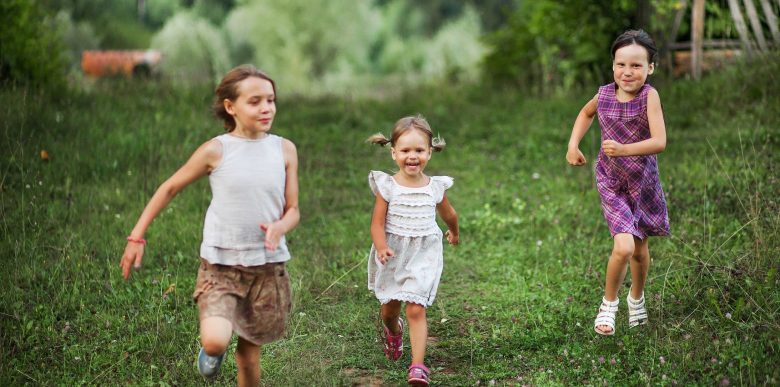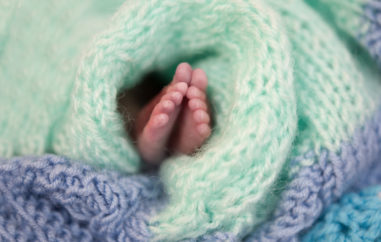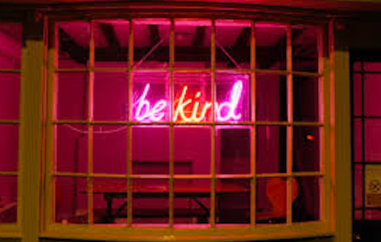Are your children ‘connected’ to nature?
1
It matters enormously, according to a briefing paper published last month by the Institute for European Environmental Policy for Friends of the Earth Europe, being ‘connected’ to nature and close to green spaces is vital for a child’s physical and mental health, even the head circumference and birth weight of new born babies are affected by how much access their mother has to green spaces. Not having this connection, the report concludes, can result in stress, depression and obesity in later life.
According to the paper this needs urgent
SelfishMother.com
2
attention and it is socio-economically disadvantaged and vulnerable groups who need it most.
The paper is only the latest of a number of research reports and books published on this topic: The RSPB, for example conducted a three year study concluding that “when young people are connected to nature, it has positive impacts on their education, physical health, emotional wellbeing, and personal and social skills, and helps them to become responsible citizens.” They found that only one in five children aged 8-12 in the UK were ‘connected to
SelfishMother.com
3
nature’.
But how is connection to nature defined? The RSPB study used a framework which included:
· enjoyment of nature
· having empathy for creatures
· having a sense of oneness with nature (e.g. a sense that they are a part of, rather than separate from the earth’s natural ecosystem);
· and having a sense of responsibility for the environment.
For the RSPB “connection to nature is about long-held attitudes and beliefs, rather than the kind of short-term, warm
SelfishMother.com
4
feeling we experience after a day outdoors”.
According a National Trust report, in the longer term, continued regular contact with nature brings an increased level of satisfaction with life in general. The National Trust found that 80% of the happiest people in the UK said that they have a strong connection with the natural world, compared with less than 40% of the unhappiest. They found that even short-term ‘doses’ of nature can have a significant impact on mental health – as little as a five minute walk in the park can improve mood and
SelfishMother.com
5
self-esteem.
The link between increased contact with nature and better mental health isn’t new, in 2007 the mental health charity Mind launched a campaign to incorporate nature into mainstream NHS treatments, under the banner Ecotherapy: The green agenda for mental health. As the reports show, more and more children are experiencing stress and mental health problems at ever younger ages, it seems that access to and enjoyment of nature should be an easy and relatively inexpensive way of treating and preventing mental health problems.
My interest
SelfishMother.com
6
in this comes from having sons aged two and four who I am bringing up in Haringey, North London. My own childhood couldn’t have been more different, I was brought up in a community in a valley covered in forests, fields and streams with only a spattering of houses in the middle of the North Yorkshire Moors, the nearest town was 12 miles away.
I do get pangs of guilt about the lack of nature in my children’s lives, although I do also think we are extremely lucky to have such a great city on our doorstep with all the things it offers, including some
SelfishMother.com
7
amazing parks and woods. It’s things like the traffic and pollution that get me down the most. We do go to parks regularly and do some nature craft activities together, so I think they have some connection with the natural world. I imagine, however, it’s a lot easier to do these sorts of things when they’re still preschool, once they’re at school (my oldest will start in September) and they’re spending more time indoors this will get harder.
I love the outdoors, gardening is one of my hobbies and I couldn’t live in London if it didn’t
SelfishMother.com
8
have its parks, there isn’t a week that goes past without me being in a park more than once. However, I also really love the mix of urban life and nature, which is why I choose to live in a city.
I was brought up to really appreciate nature and I very much hope I’m able to do the same for my boys, although in a very different setting.
So why do we have this ‘disconnect’ and how can we get our children more connected to nature?
I think that this disconnect is happening for many reasons and it varies for all of us depending on where
SelfishMother.com
9
we’re living and our personal circumstances, some reasons could be that: we’re increasingly time strapped as parents, children are spending more time on gadgets than ever before and we’re also becoming more risk averse when it comes to letting our children go out alone
So what can we do? Obviously getting outdoors more is great and necessary, and not just going to a playground, but playing in grass and woodlands as much as possible too.
I think we can also help to foster a feeling of awe and wonder of nature by doing little things at home,
SelfishMother.com
10
like creating a nature table with seasonal things we find in the park or on the way home from school such as petals, pine cones, leaves, pretty stones etc. Planting seeds, either on a windowsill or outdoors and watching them grow is also a great way to do this and crafting out of natural things will give children a tactile appreciation of the natural world.
The Wild Network list some great ideas to get your kids playing in nature whether you’re living in middle or a city or in rural countryside, they also list them by the amount of time you have,
SelfishMother.com
11
which is useful. The National Trust also have a list of the 50 things to do before you’re 11 and three quarters.
Thank you for reading!
I’ve just created a blog site www.mudandbloom.com as a place to share my ideas and the activities I’m undertaking with my boys as well as ideas and tips from others. If you any suggestions and activities on connecting children with nature I’d love to hear from you!
You can also contact me at @anjaffrench
SelfishMother.com
This blog was originally posted on SelfishMother.com - why not sign up & share what's on your mind, too?
Why not write for Selfish Mother, too? You can for free and post immediately.
We regularly share posts on @SelfishMother Instagram and Facebook :)
Anja ffrench - 8 Apr 17
It matters enormously, according to a briefing paper published last month by the Institute for European Environmental Policy for Friends of the Earth Europe, being ‘connected’ to nature and close to green spaces is vital for a child’s physical and mental health, even the head circumference and birth weight of new born babies are affected by how much access their mother has to green spaces. Not having this connection, the report concludes, can result in stress, depression and obesity in later life.
According to the paper this needs urgent attention and it is socio-economically disadvantaged and vulnerable groups who need it most.
The paper is only the latest of a number of research reports and books published on this topic: The RSPB, for example conducted a three year study concluding that “when young people are connected to nature, it has positive impacts on their education, physical health, emotional wellbeing, and personal and social skills, and helps them to become responsible citizens.” They found that only one in five children aged 8-12 in the UK were ‘connected to nature’.
But how is connection to nature defined? The RSPB study used a framework which included:
· enjoyment of nature
· having empathy for creatures
· having a sense of oneness with nature (e.g. a sense that they are a part of, rather than separate from the earth’s natural ecosystem);
· and having a sense of responsibility for the environment.
For the RSPB “connection to nature is about long-held attitudes and beliefs, rather than the kind of short-term, warm feeling we experience after a day outdoors”.
According a National Trust report, in the longer term, continued regular contact with nature brings an increased level of satisfaction with life in general. The National Trust found that 80% of the happiest people in the UK said that they have a strong connection with the natural world, compared with less than 40% of the unhappiest. They found that even short-term ‘doses’ of nature can have a significant impact on mental health – as little as a five minute walk in the park can improve mood and self-esteem.
The link between increased contact with nature and better mental health isn’t new, in 2007 the mental health charity Mind launched a campaign to incorporate nature into mainstream NHS treatments, under the banner Ecotherapy: The green agenda for mental health. As the reports show, more and more children are experiencing stress and mental health problems at ever younger ages, it seems that access to and enjoyment of nature should be an easy and relatively inexpensive way of treating and preventing mental health problems.
My interest in this comes from having sons aged two and four who I am bringing up in Haringey, North London. My own childhood couldn’t have been more different, I was brought up in a community in a valley covered in forests, fields and streams with only a spattering of houses in the middle of the North Yorkshire Moors, the nearest town was 12 miles away.
I do get pangs of guilt about the lack of nature in my children’s lives, although I do also think we are extremely lucky to have such a great city on our doorstep with all the things it offers, including some amazing parks and woods. It’s things like the traffic and pollution that get me down the most. We do go to parks regularly and do some nature craft activities together, so I think they have some connection with the natural world. I imagine, however, it’s a lot easier to do these sorts of things when they’re still preschool, once they’re at school (my oldest will start in September) and they’re spending more time indoors this will get harder.
I love the outdoors, gardening is one of my hobbies and I couldn’t live in London if it didn’t have its parks, there isn’t a week that goes past without me being in a park more than once. However, I also really love the mix of urban life and nature, which is why I choose to live in a city.
I was brought up to really appreciate nature and I very much hope I’m able to do the same for my boys, although in a very different setting.
So why do we have this ‘disconnect’ and how can we get our children more connected to nature?
I think that this disconnect is happening for many reasons and it varies for all of us depending on where we’re living and our personal circumstances, some reasons could be that: we’re increasingly time strapped as parents, children are spending more time on gadgets than ever before and we’re also becoming more risk averse when it comes to letting our children go out alone
So what can we do? Obviously getting outdoors more is great and necessary, and not just going to a playground, but playing in grass and woodlands as much as possible too.
I think we can also help to foster a feeling of awe and wonder of nature by doing little things at home, like creating a nature table with seasonal things we find in the park or on the way home from school such as petals, pine cones, leaves, pretty stones etc. Planting seeds, either on a windowsill or outdoors and watching them grow is also a great way to do this and crafting out of natural things will give children a tactile appreciation of the natural world.
The Wild Network list some great ideas to get your kids playing in nature whether you’re living in middle or a city or in rural countryside, they also list them by the amount of time you have, which is useful. The National Trust also have a list of the 50 things to do before you’re 11 and three quarters.
Thank you for reading!
I’ve just created a blog site www.mudandbloom.com as a place to share my ideas and the activities I’m undertaking with my boys as well as ideas and tips from others. If you any suggestions and activities on connecting children with nature I’d love to hear from you!
You can also contact me at @anjaffrench
Did you enjoy this post? If so please support the writer: like, share and comment!
Why not , too? You can share posts & events immediately. It's free!
I've recently moved from London to Bristol with my two boys (3 and 5) and my partner. I spent the past 16 years working in the charity sector, however I resigned from my full time job to have a career change to enable me to spend more time with my kids. I'm currently studying an RHS Horticulture Course and practicing things I’ve learnt with my boys. I've been sharing children's gardening and nature activity ideas I've been doing with my boys on my blog www.mudandbloom.com and on my social media platforms.
If you have any children's gardening and nature activities you'd like to share, I’d love to hear from you!
LIST




















